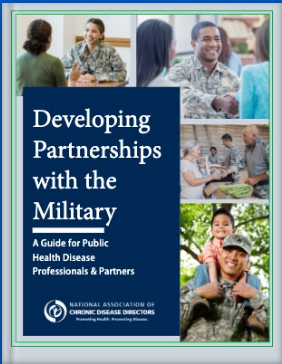Partnership Guide for Public Health Professionals
Step 2: Health Agencies and Initiatives
The Military Health System
The Military Health System (MHS) is one of America’s largest and most complex health care institutions. It is responsible for combat medical support and for providing health services to military personnel and dependents through both direct care and private sector care. Direct care refers to military-owned hospitals and clinics, also known as military treatment facilities (MTF). MTFs are organized into one of nine Defense Health Networks. A Defense Health Network is a group of military medical and dental facilities that operates as a coordinated system and improves the delivery and continuity of health services.
The Defense Health Agency is responsible for managing the MTFs and private sector care, delivering the military’s health plan, TRICARE, maintaining MHS GENESIS, DoD’s electronic health record, augmenting medical capabilities of the services, and offering education and training to MHS providers.
The DHA is situated organizationally under the Office of the Under Secretary of Defense for Personnel and Readiness [USD (P&R)] and the Office of the Assistant Secretary of Defense for Health Affairs [ASD (HA)]. 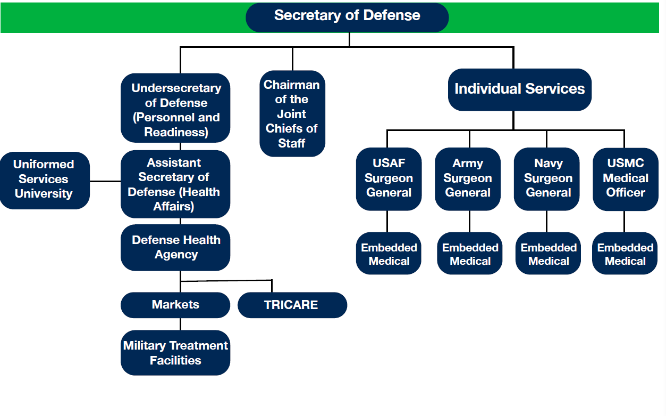
The MHS is also supported by the Uniformed Services University of the Health Sciences (USU). USU is the nation’s federal health professions academy — akin to the undergraduate programs of the U.S. military academies at West Point, Annapolis, and Colorado Springs. Like the academies, students are not charged tuition; they repay the nation for their education through service. USU is home to many different centers, institutes, and programs, which help advance their research, education, and public service missions. One center, the Consortium for Health and Military Performance (CHAMP), is dedicated to the health and performance of Service members, their families, retirees, and all DoD personnel. They promote Total Force Fitness (TFF) as an overarching framework for Service member readiness.
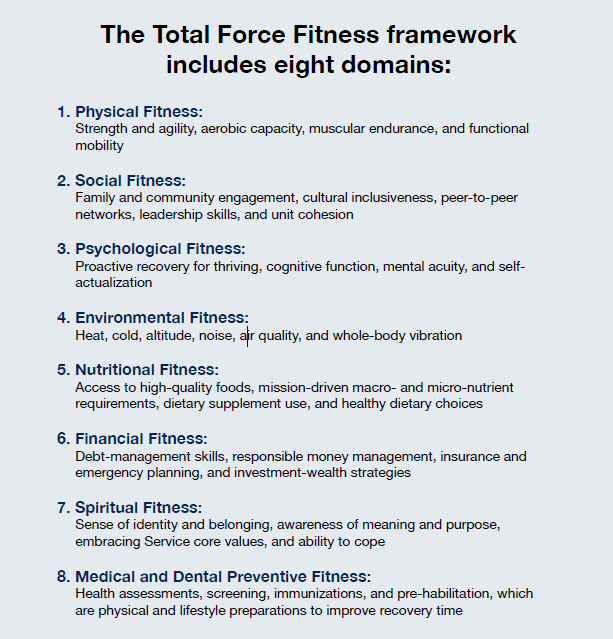
Veterans Health Administration
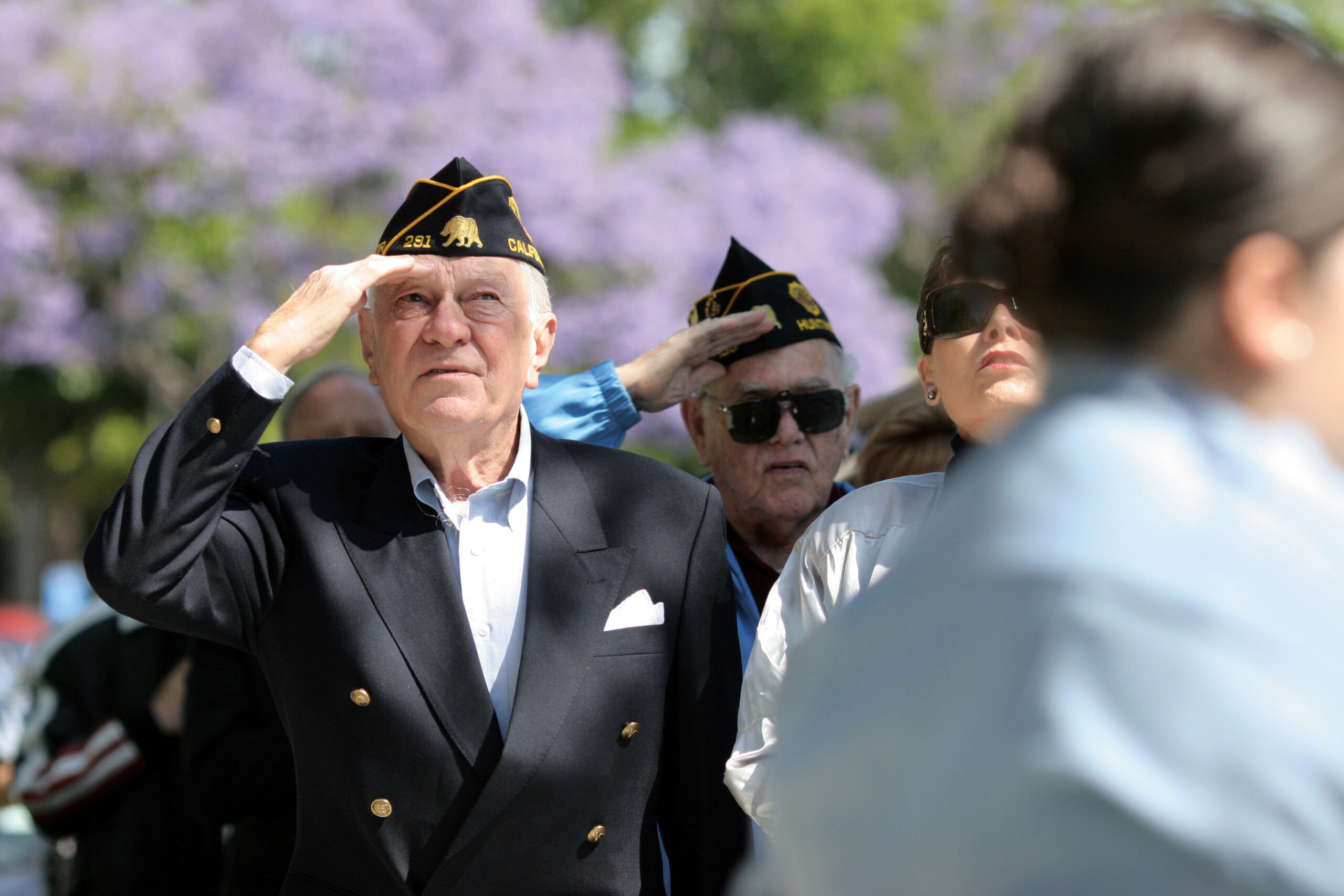 The Veterans Health Administration is America’s largest integrated health care system, providing care across 1,298 health care facilities, including 171 medical centers and 1,113 VHA outpatient clinics, serving nine million enrolled veterans each year. To be eligible for care, a person must have: 1) served in the active-duty military, naval, or air service for 24 continuous months or the full period for which they were called to active duty; and 2) be discharged or released under conditions other than dishonorable. Depending on the time served, Reserve and National Guard members may also be eligible for benefits. In addition to providing healthcare through VA facilities, the VA also provides several health programs for veterans, including:
The Veterans Health Administration is America’s largest integrated health care system, providing care across 1,298 health care facilities, including 171 medical centers and 1,113 VHA outpatient clinics, serving nine million enrolled veterans each year. To be eligible for care, a person must have: 1) served in the active-duty military, naval, or air service for 24 continuous months or the full period for which they were called to active duty; and 2) be discharged or released under conditions other than dishonorable. Depending on the time served, Reserve and National Guard members may also be eligible for benefits. In addition to providing healthcare through VA facilities, the VA also provides several health programs for veterans, including:
- Caregivers/Caregiving: Support and services for those who care for veterans
- Community Living Centers: Short- and long stay nursing home care for veterans who are medically and mentally stable
- Dental Care Benefits: Facts regarding dental eligibility criteria and information to assist veterans in understanding their eligibility for VA dental care
- Disease Prevention: Health promotion, disease prevention, and health education
- Geriatrics and Extended Care: Geriatric and extended care services for veterans including non-institutional and institutional options
- Homeless Services: Resources, programs, and benefits to assist veterans who are homeless
- Mental Health: Support and resources in health care, social services, education, and research
- Rural Health: Improving access to and quality of care for veterans living in rural areas
- Smoking Cessation: Resources and tools to help veterans quit tobacco use
- Substance Abuse Programs: Treatments addressing all types of problems related to substance use, from unhealthy use of alcohol to life-threatening addictions
- Weight Management: The MOVE! Program helps veterans lose weight, keep it off, and improve their health
- Women Veterans Health Care: Provision of care for all women veterans
The U.S. is divided into 18 Veterans Integrated Service Networks, or VISNs — regional systems of care working together to better meet local health care needs and provides greater access to care. VISNs manage the day-to-day functions of medical centers and also provide administrative and clinical oversight of medical centers. The VA also offers care in the private sector through the VA Community Care Network. This network is the VA’s direct link with community providers to ensure veterans receive timely, high-quality care. CCN uses industry-standard approaches and guidelines to administer, promptly pay for services and manage the network to its full potential.
Like DoD’s Total Force Fitness, the VA promotes a model for health called Whole Health. The model has four key elements – Me, Self-Care, Professional Care, and Community. 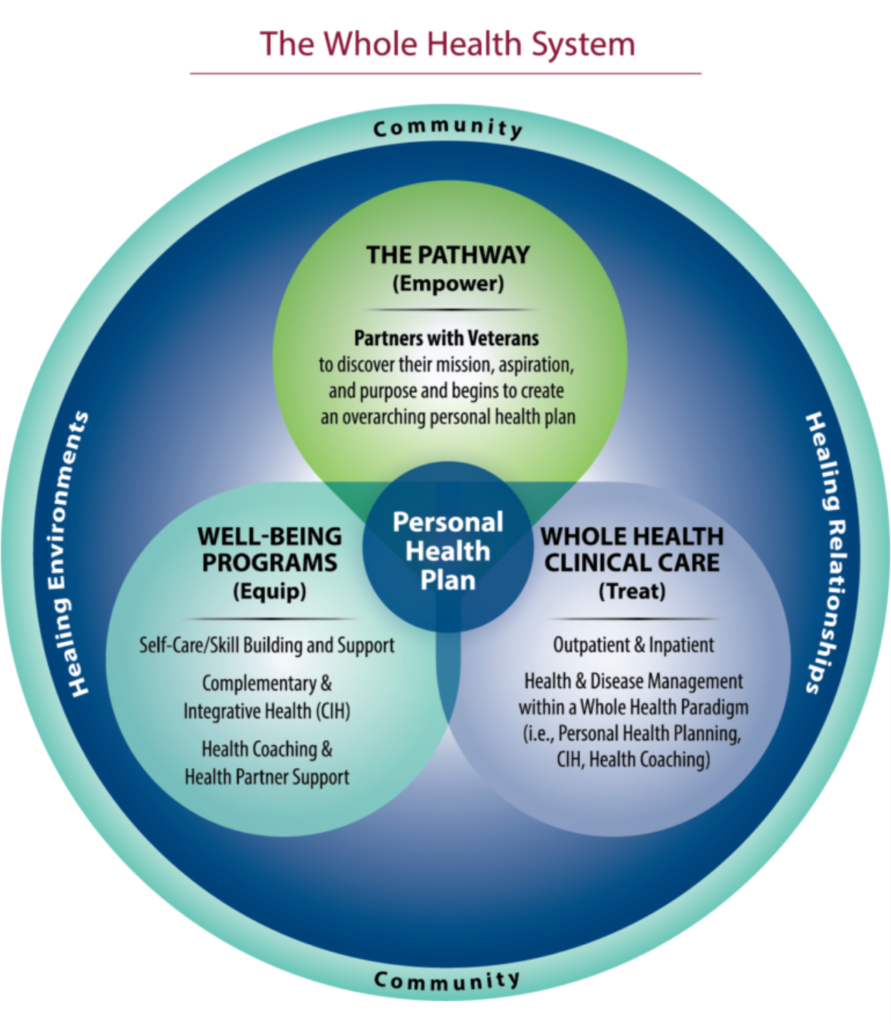
Military Family Readiness System
Family well-being is important to DoD for multiple reasons. Family members provide support to Service members and family problems can interfere with the ability of Service members to deploy or remain in combat. In other words, family members are key influences on whether members continue to serve. The Military Family Readiness System (MFRS) is a network of programs and services operated by DoD and other federal, state, and community-based agencies and organizations to promote military family well-being. MFRS offers programs and services that enhance family readiness, resilience, and quality of life.
Military and Family Support Centers
Installation-based Military and Family Support Centers (M&FSC) supply family readiness information and services. Centers are open to all Service members and their families, regardless of the Service member’s branch. Services provided by M&FSCs include:
- Mobility and deployment assistance
- Relocation assistance
- Financial education
- Spouse education and career services
- Personal and family life education
- Emergency family assistance
- Domestic abuse prevention and response services
- Child abuse prevention and response services
- New Parent Support Program
- Exceptional Family Member Program support
- Non-medical individual and family counseling
- Transition assistance to prepare separating Service members to re-enter civilian life
- Information and referral
- Morale, Welfare, and Recreation (MWR)
Most services have additional family support programs that are open only to members of their service:
- Army Community Services
- Marine Corps Community Services
- Navy Fleet and Family Support
- Airman and Family Readiness (Includes Space Force)
- Coast Guard Work-Life Program
Reserve and National Guard Family Programs
Reserve Component family programs deliver family readiness services through facility-based locations, online, and by telephone. These access points deliver a limited number of direct services to members and their families, but they can refer to other Military Family Readiness System resources. The links below outline the general functions of each service’s family readiness program.

